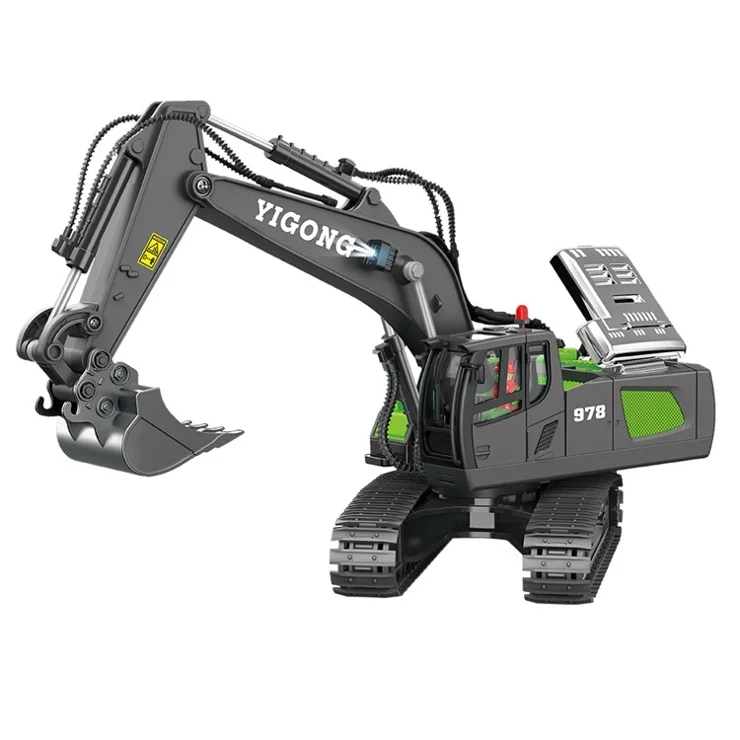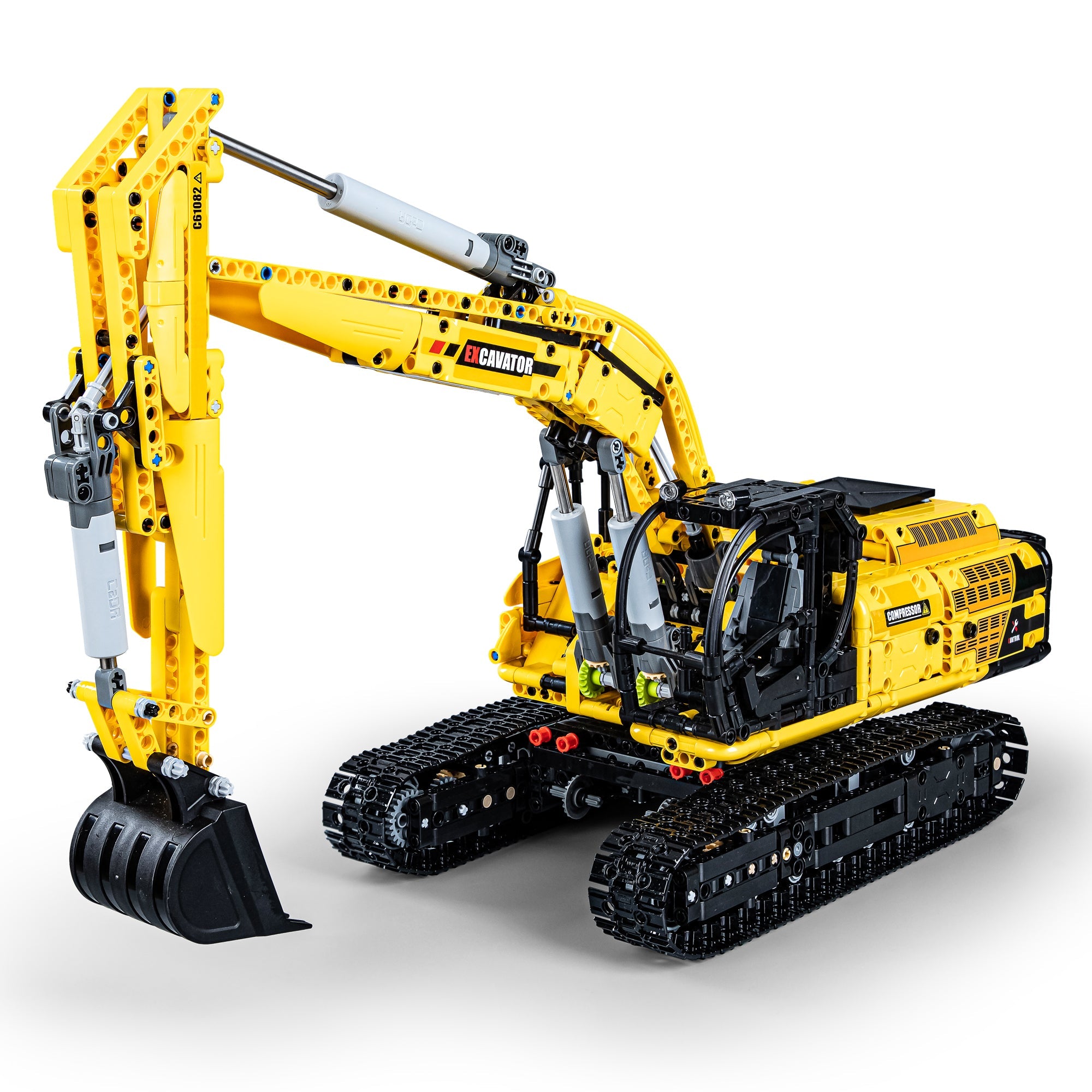Discover the Significance of Excavator in Modern Construction Projects
Excavators are necessary tools in contemporary building and construction projects. Their convenience enables them to execute a wide variety of tasks, from digging and grading to demolition and website prep work. Advanced functions, such as hydraulic add-ons and GPS, improve their capabilities and effectiveness on job sites. As the sector advances, the value of excavators grows even extra. Recognizing their role can disclose understandings into the future of construction techniques. What exists in advance for these devices?
The Versatility of Excavators in Various Projects
Excavators are often connected with massive building and construction tasks, their convenience allows them to be used in a vast array of applications, from household landscaping to energy upkeep. In urban settings, excavators can browse limited rooms to dig structures for homes or set up water drainage systems. Their capability to do delicate tasks makes them ideal for landscape design tasks, where they can excavate for ponds or plant trees. Furthermore, excavators play an important duty in utility maintenance, effectively digging trenches for pipes or wires without interfering with surrounding areas. In farming applications, they assist in land clearing up and dirt preparation. In addition, their versatility enables them to be outfitted with various add-ons, improving their capability throughout different jobs. This diverse nature of excavators not just streamlines different construction procedures however also shows their important role in contemporary facilities growth and upkeep.
Secret Features and Kinds Of Excavators
The conversation on key functions and kinds of excavators highlights the crucial characteristics that make these makers very useful in construction. Numerous excavator types, each developed for details tasks, show their versatility and performance across different applications. rc excavator. Understanding these features and classifications is crucial for optimizing their use in contemporary building and construction jobs
Excavator Keys In Introduction
Excavators play an essential role in modern construction, providing adaptability and performance across various jobs. These heavy equipment units come in numerous kinds, each customized for particular applications. The most typical kinds include crawler excavators, understood for their stability on uneven terrain, and wheeled excavators, which supply greater flexibility on smooth surface areas. Tiny excavators are favored for limited rooms and small-scale projects, while long-reach excavators are created for deep digging. Additionally, there are specialized excavators, such as hydraulic excavators, which improve power and accuracy. Each kind includes unique capabilities, making them crucial for jobs varying from excavating and grading to demolition and material handling. Understanding these variations enables building and construction specialists to choose the appropriate excavator for their task requires.
Trick Includes Explained
Comprehending the crucial features of excavators enhances their effective application in building and construction tasks. Excavators are characterized by their effective hydraulic systems, which give the essential force for excavating, training, and relocating materials. Their articulated arms permit a large range of activity, promoting specific operations in confined rooms. Additionally, the range of attachments, such as containers, grapples, and augers, expands their flexibility to fulfill various task demands. The dimension and weight of excavators likewise contribute to their security and ability to move on different terrains. Additionally, improvements in technology have led to the assimilation of general practitioner and automation, improving accuracy and effectiveness in excavation tasks. These attributes collectively position excavators as crucial tools in contemporary building.
Applications in Building
Transforming building and construction sites, excavators play an essential duty across various applications, ranging from domestic building tasks to large-scale facilities growths. These flexible equipments are geared up for tasks such as digging structures, trenching for energies, and site grading. Different sorts of excavators, including crawler, wheeled, and mini excavators, give details benefits tailored to the task demands. Spider excavators excel in rough surfaces, while rolled excavators offer movement on paved surfaces. Small excavators are suitable for constrained spaces, making them prominent in metropolitan setups. The efficiency and power of excavators considerably quicken building processes, guaranteeing prompt project completion. Their adaptability even more boosts their relevance, allowing construction groups to tackle a varied selection of challenges effectively.
Enhancing Performance and Efficiency on Job Sites
Making the most of performance and performance on job websites is a crucial purpose in modern construction. Excavators play a pivotal role in achieving this goal by improving numerous tasks. Their capacity to carry out multiple functions-- such as grading, training, and digging-- minimizes the need for additional tools, consequently saving time and resources.Moreover, excavators enhance workflow by allowing for faster conclusion of jobs. With advanced features like hydraulic attachments and GPS modern technology, they can carry out precise procedures that lessen errors and rework. This precision not only boosts the high quality of work yet additionally optimizes product usage, adding to set you back savings.The flexibility of excavators enables them to adjust to various website problems, ensuring that projects progress efficiently no matter challenges. By integrating excavators into construction procedures, groups can significantly improve their total efficiency, resulting in prompt task conclusion and raised profitability.
Safety And Security Benefits of Using Excavators
Excavators significantly improve safety and security on construction sites through enhanced driver presence and lowered manual work dangers. By giving operators with a clear view of their surroundings, excavators help to stop injuries and crashes. Furthermore, the equipment reduces the need for workers to participate in dangerous hand-operated jobs, better advertising a much safer work setting.
Enhanced Driver Exposure
Building and construction websites can be chaotic and loaded with potential dangers, enhanced operator presence plays a necessary function in guaranteeing safety and security when using excavators. Modern excavators are created with big, unhampered windows and tactically put mirrors, permitting operators to preserve a clear sight of their environments (rc excavator). This improved exposure is essential for finding pedestrians, various other machinery, and different obstacles, substantially minimizing the threat of accidents. In addition, several excavators incorporate advanced innovation, such as video remote control excavator cameras and sensing units, to provide drivers with extra point of views, even more enhancing understanding. The capacity to see even more plainly not only help in reliable procedure but also fosters a more secure work setting, making it simpler for drivers to browse intricate construction sites without endangering safety and security standards
Decreased Manual Work Threats
When manual work is minimized via the usage of excavators, many safety and security benefits arise, markedly boosting the well-being of construction employees. Excavators reduce the physical strain connected with hefty lifting and recurring tasks, successfully decreasing the threat of bone and joint injuries. By automating procedures such as digging, grading, and relocating materials, they permit employees to maintain a much safer distance from potential dangers. Additionally, excavators are equipped with advanced security functions, such as rollover protection systems and enhanced operator functional designs, which additionally safeguard personnel on website. The outcome is a considerable reduction in workplace crashes and injuries, resulting in enhanced performance and morale amongst building teams. Eventually, the adoption of excavators contributes to a much safer and extra efficient construction environment.
Excavators in Earthmoving and Website Preparation
In modern-day building and construction, a considerable portion of earthmoving and site preparation jobs depends on the performance and convenience of excavators. These machines are designed to deal with numerous soil kinds and terrain, making them important for grading, digging, and trenching tasks. Their hydraulic arms can be outfitted with different add-ons, such as containers and augers, permitting drivers to personalize their approach based upon certain project requirements.Excavators succeed at moving big quantities of earth rapidly and effectively, which speeds up the total building and construction timeline. They can browse tight areas and testing sites where typical tools might struggle, improving performance. In addition, the precision of excavators assurances that site preparation abides by strict specs, decreasing the threat of errors that can lead to expensive rework.
The Role of Excavators in Demolition Tasks
Excavators play an essential role in demolition tasks, as they possess the power and agility needed to dismantle structures effectively. Outfitted with different accessories such as hydraulic breakers, shears, and grapples, these equipments can adjust to various demolition demands, whether for small structures or big industrial websites. Their flexibility allows drivers to tackle intricate tasks while maintaining safety and security and precision.In enhancement to their demolition capabilities, excavators facilitate debris removal, guaranteeing that work websites stay well organized and secure. By damaging down structures right into convenient pieces, they permit for structured clearing and recycling of products, aligning with contemporary sustainability efforts.Moreover, excavators can access tight rooms and navigate irregular surface, making them essential in urban demolition tasks. Overall, their durable style and multifunctionality make excavators an essential possession in the demolition stage of building and construction, adding considerably to task timelines and performance.


Future Fads in Excavator Modern Technology and Usage
As the building and construction market evolves, improvements in excavator modern technology are positioned to transform their usage and effectiveness significantly. One considerable fad is the assimilation of automation and synthetic knowledge, permitting excavators to operate with minimal human intervention. This change will boost accuracy in jobs such as grading and trenching, decreasing human error and increasing productivity.Additionally, the surge of hybrid and electric excavators is shaping an extra lasting construction environment, reducing carbon emissions and fuel expenses. Improved telematics systems are additionally emerging, enabling real-time monitoring of machine efficiency and upkeep requirements, which can cause better operational performance and longer tools lifespan.Moreover, advancements in attachment technology are broadening the convenience of excavators, permitting them to perform a more comprehensive range of tasks. The combination of these fads shows a future where excavators are smarter, greener, and extra adaptable, inevitably improving building and construction task dynamics.
Regularly Asked Questions
Just How Do Excavators Compare to Various Other Construction Equipment?
Excavators, characterized by their flexibility and power, master digging and earthmoving compared to various other machinery. Their ability to carry out various tasks, including lifting and demolition, makes them vital in construction jobs, enhancing general effectiveness.

What Is the Typical Life-span of an Excavator?
The average life expectancy of an excavator generally ranges from 7,000 to 10,000 operating hours, depending upon upkeep, usage conditions, and model. Correct treatment can expand this lifespan, ensuring peak performance throughout its functional years.
Just How Are Excavators Kept for Optimal Efficiency?
Excavators need regular upkeep for peak performance, consisting of regular inspections, fluid checks, filter substitutes, and prompt repair work. Implementing a precautionary upkeep routine aids prolong their lifespan and warranties efficient operation in numerous building atmospheres.
What Are the Costs Connected With Renting Out vs. Acquiring an Excavator?
The costs related to purchasing an excavator versus renting vary significantly. Leasing deals lower upfront expenditures yet can gather with time, while buying requires a substantial preliminary investment, but supplies long-term financial savings and property ownership advantages.
What Training Is Required to Run an Excavator?
Operating an excavator needs specialized training, usually including safety and security methods, machine procedure methods, and ecological awareness. Accreditation programs commonly mandate useful experience, enabling drivers to take care of numerous jobs efficiently while guaranteeing conformity with sector policies. The most usual types consist of crawler excavators, known for their security on uneven surface, and rolled excavators, which provide greater flexibility on paved surface areas. Tiny excavators are preferred for limited rooms and small tasks, while long-reach excavators are created for deep excavating. Furthermore, there are customized excavators, such as hydraulic excavators, which enhance power and accuracy. Various kinds of excavators, including spider, wheeled, and mini excavators, give particular advantages tailored to the task requirements. Spider excavators stand out in rough surfaces, while rolled excavators supply mobility on smooth surface areas.